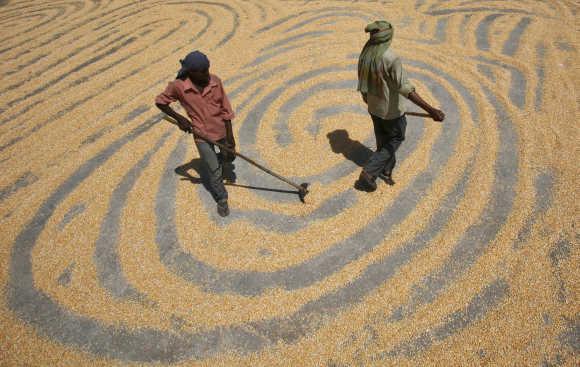
Subbu Raj, a farmer from Karunkuzhi, a small town on the busy GST Road that connects Chennai with southern parts of Tamil Nadu, no longer thinks he and his five-member family can depend on agriculture alone to survive.
"Even if we want to stay in agriculture, it's not possible," says Raj, who belongs to the sixth generation of a family, which was largely dependent on agriculture for decades.
. . .

"With the rise in fertiliser prices, shortage of labour and increased cost of living, survival is becoming very difficult.
"Besides, this year's deficient rains make things worse," Raj adds , referring to the hardships farmers in Tamil Nadu face today.
Four years earlier, his monthly income was about Rs 34,000-37,000 from agriculture, today it is hardly Rs 15,000, which has to be invested in the farms again as maintenance cost.
To support his family, he is now running a stationery shop in the town and going for work under the government's rural employment programme.
. . .
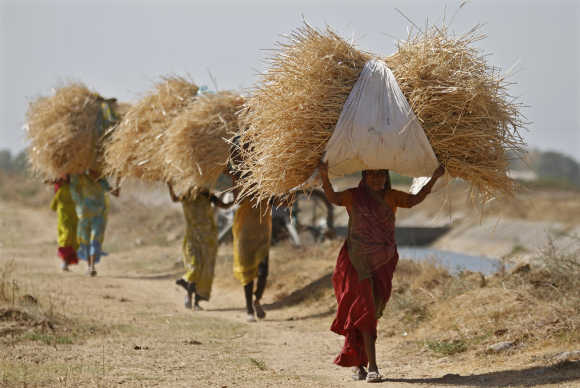
Raj is not the only farmer in Karunkuzhi, who is taking up other works for survival.
As agricultural income has been shrinking, farmers in several parts of the state are now selling their farm land and looking for other works, mainly under the the Mahatma Gandhi National Rural Employment Guarantee Scheme.
"With the input prices going up, including the fertiliser costs, the farmers now have limited options like selling their assets if they have any, or borrowing money," says Venkatesh B Athreya, advisor, food security, M S Swaminathan Research Foundation.
Take the example of Mullaimuneke Kuppam, a small village some 110 km from Chennai.
. . .
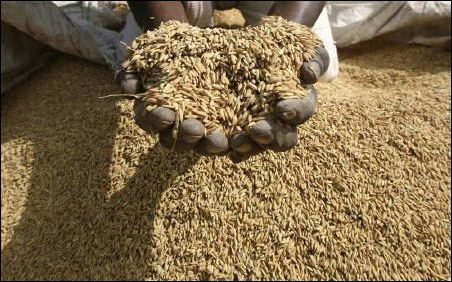
The village, with a population of around 7,000 people, once had green, lush fields, with over 450 acres of cultivable land.
Today, according to S Sundar, a farmer-turned real estate agent, a paltry 50 acres is left for agriculture.
Does the shrinking agricultural activity affect rural consumption in Tamil Nadu, the second largest state in terms of consumer spending in the country?
People may be deferring purchase plans for expensive durable goods and jewellery, but consumer goods demand almost stays intact, thanks to the availability of jobs outside the farm sector, say experts, local residents and traders.
. . .

"Today, the source of money is MGNREGS, real estate or factories," says Sundar, the real estate agent. "This town (Mullaimuneke Kuppam) alone sees around 15-20 buses from nearby factories every day to pick up workers."
Adds Meeran, a provision store owner in the town: "I will say during this time, awareness about brands is going up, since people prefer spending extra Rs 5 for goods, instead of spending Rs 250 to a doctor."
K Babu of Balaganapathy Agencies, stockist for Hindustan Unilever Ltd, who sells product in and around Sholingur, says in rural areas, sales of premium products are always low and small quantity packets are moving faster.
. . .
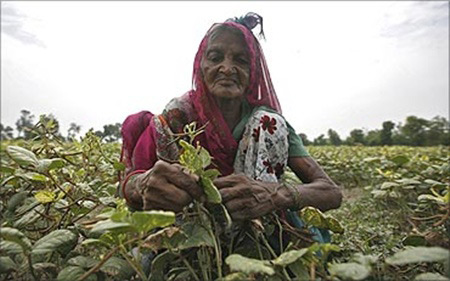
But all FMCG (fast-moving consumer goods) products are selling as normal, he added. He supplies around 200 items of HUL and the growth is at about 20 per cent from January, he said.
Experts say rural Tamil Nadu has seen increase in income in recent years due to several factors like MGNREGA and migration of workers to cities.
"The difference between spending on essential commodities is less between the urban and rural areas and even that difference is coming down," says P Rashmi Upadhya, assistant director, strategy at accounting firm PricewaterhouseCoopers.
. . .
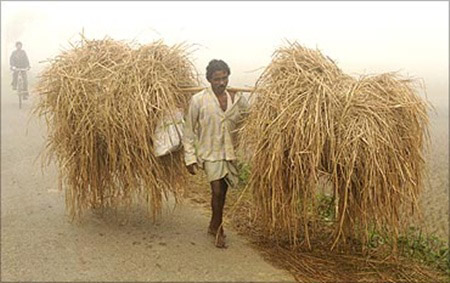
"MGNREGA has played a role in increasing the rural income, but factors like farm mechanisation and urban migration of rural population, who then sends back money to rural areas are also increasing the rural income."
But still all is not well for Tamil Nadu's consumption story. Besides distress in the agriculture sector, the economic slowdown and high inflation have already taken a toll on the sale of expensive products, say traders.
"Rural consumers are smart and they decide on spending, as per their income.
The spending may go down if the monsoon is disturbed and the income levels go down," says Upadhya of PWC.
"Even though the spending on essential categories like rice or wheat might not be reduced, they may decide to reduce the consumption of oil and similar things.
"On the electronic items, the rural Tamil Nadu is already spending only half of what the urban population spend."
. . .
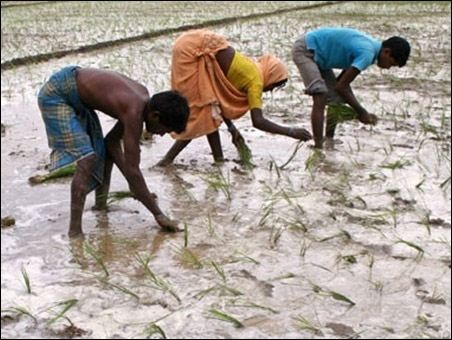
Agrees Vel Rajan, who runs Lingson TV Centre and Furnitures in Shollingar: "In the last three-four months, sales of electronic items, like air conditioner, washing machine, television and similar things has gone down by 10-20 per cent."
Income coming from outside the farm sector, may be keeping the consumption of basic commodities intact for now.
But experts say it's not sustainable in the long run as agriculture is the lifeline of the rural economy.
"It seems to be intuitively correct to say that the rural consumption is coming down. In 2009-10, during a study on inflation, we came across cases where farmers admitted they are cutting cost," says Athreya of the Swaminathan Research Foundation.